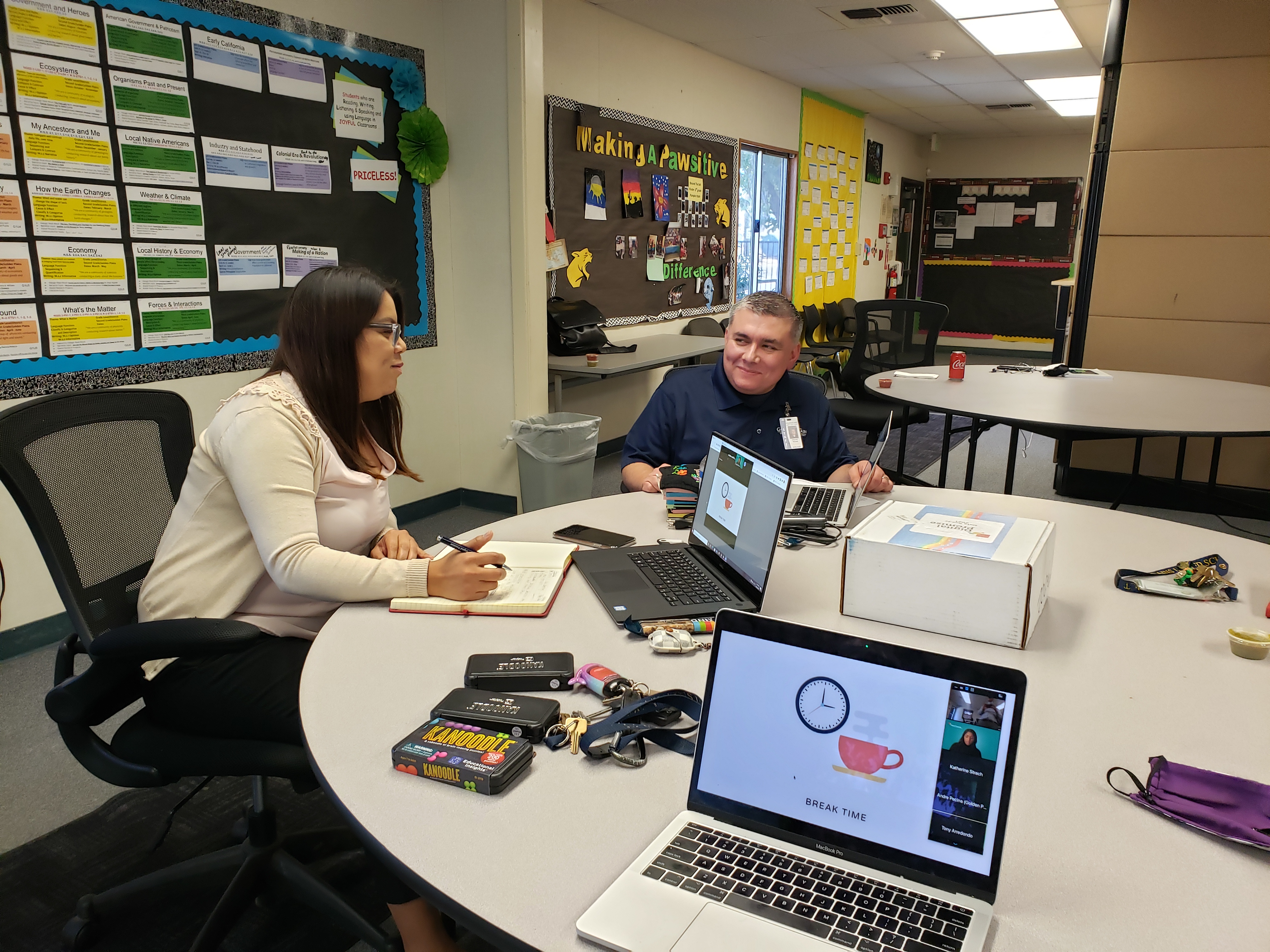
October 26, 2020 | By Apeksha Goonewardena
Over the past few months, district and charter leaders from 11 districts participating in Digital Promise’s Data Ready 2021 cohort have created actionable data interoperability implementation plans centered on a high-need use case anchored in secure data use, data management, and data integration.
Every use case is unique and informed by each district’s distinct needs and context. District leaders at Golden Plains Unified School District, in the western portion of Fresno County, California, quickly narrowed their use case to focus on attendance in their district. Golden Plains is a unification of four separate districts that include the rural communities of Cantua, Helm, San Joaquin, and Tranquility. Absenteeism is a persistent challenge for their population of 1,649 students, mostly from Latino and Hispanic families.
During the 2019–2020 school year alone, 13 percent of Golden Plains students experienced chronic absenteeism. Attendance issues were exacerbated by the effects of the COVID-19 pandemic as the district shifted to distance learning and students struggled to access technology and actively participate in learning.

Andre Pecina, assistant superintendent of student services at Golden Plains Unified School District, heads a team through the Data Ready 2021 cohort to address chronic absenteeism that has worsened due to the COVID-19 pandemic.
As a result, Golden Plains’ priorities quickly shifted to understanding how to get students engaged online, which prompted the district to reflect on its internal data systems and join the Data Ready 2021 cohort. Andre Pecina, assistant superintendent of student services at Golden Plains, knew it was especially important to turn to data to address the deeper root causes at the heart of attendance in their district. He noted, “We have a Student Information System (SIS) that provides attendance data, but what are we actually doing with this data? How can we use this data to understand the percentage of students who are not attending school? I want to understand their story.” From this starting point, Pecina and his team began analyzing and investigating their SIS and other student data systems that could be used to address unanswered questions surrounding attendance in their district.
Before a district like Golden Plains can implement an interoperable solution, it must achieve data readiness. Data readiness is best defined by Digital Promise’s Readiness Framework, which focuses on three “readiness” domains—Project Governance, Needs Assessment and Implementation Plan—all of which are critical to successfully implementing data interoperability projects. Each domain is divided into three readiness stages: Awareness, Developing Evidence, and Ready for Interoperability. This framework is the backbone of Digital Promise’s recently launched Data Ready Playbook, a free resource that provides activities for each domain and stage to help a district advance its readiness. When a district has completed the “Ready for Interoperability” stage of all three domains in the playbook, it will be data ready and prepared to implement a successful interoperable solution for a unique use case.
Districts can easily understand their readiness by completing the Readiness Diagnostic, an additional feature of the Data Ready Playbook. This diagnostic will assess a district’s progress to date on the Readiness Framework and provide a customized learning plan for a district to follow when using the Data Ready Playbook.
Now, Pecina and his team at Golden Plains are leveraging their district’s customized learning plan to establish a governance structure to serve as the basis for their work. This has involved organizing stakeholder discussions around district data usage and clearly documenting their data landscape. From there, they plan to solidify protocols related to attendance data in their district to allow for a more seamless exchange of attendance data.
Once this foundation is built, they will evaluate a range of interoperable solutions that can help the district connect disparate systems—including their SIS, attendance reporting, and intervention service—that are vital to understanding the context and stories of students who are not attending school. Although reaching data readiness takes time, Golden Plains and other districts in the Data Ready 2021 cohort are committed to implementing resilient, actionable, and adaptive data plans to better support their school communities.
However unpredictable and uncertain the future may be, data plans can help districts quickly identify problems, address them, and adjust and adapt to ensure learning is optimized, whether it takes place online or in the classroom.
How ready is your district? Explore the Data Ready Playbook and take the Readiness Diagnostic to find out.
By AJ Foster and Babe Liberman
By Josh Weisgrau and Teresa Solorzano